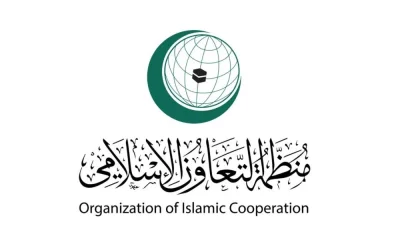Uzbekistan is joining the rising number of Central Asian nations to develop a Shariah-compliant banking system given its large Muslim population and rising demand for financial services aligned to Islamic beliefs. This month, the Uzbek government issued a draft resolution to create infrastructure for Islamic banking and finance in the country, as posted on the official government website. The aim is to create alternative financing opportunities in the former Soviet republic, expand the range of banking and financial services and open the doors for Islamic investors from the Middle East and possibly Southeast Asia.
To that end, the central bank has been tasked with developing a legal and regulatory framework not just for Islamic banking, but also for takaful and securities trading, as well as financing for small and medium enterprises and halal microfinance. The government also wants to set up a Shariah-compliant development bank in co-operation with and support from Saudi Arabia-based Islamic Development Bank.
Thus, the framework will include the launch of the Islamic Development Bank of Uzbekistan (IDBU), which will provide standard retail banking services, trade financing, property and commercial real estate financing, as well as leasing, takaful and securities services. It is also tasked with developing more complex financial products, such as structured finance, venture capital, investment funds and risk hedging.
The IDBU will also be enabled to refinance commercial banks in order provide services through Islamic windows for retail and commercial clients. Eventually, the IDBU will also play a role as issuer of sukuk, whether public or corporate.
Uzbekistan has the largest number of Muslims of all Central Asian nations at around 27mn, or 89% of its population. However, the widely secular country has had just small exposure to Islamic finance in the past, and understanding of the principle of Shariah-compliant banking was limited.
There is just one home-grown Islamic banking operation in Uzbekistan through Tashkent-based Hamkor Bank, which launched an Islamic window in 2013. Other initiatives were also established only recently, such as the Islamic Corp for the Development of the Private Sector entering into co-operation with several financial institutions, namely Asia Alliance Bank, Hamkor Bank, KapitalBank, Ipak Yuli Bank, Uzbek Leasing International and JSCB Microkreditbank to provide funding for small and medium enterprises and entrepreneurs in Uzbekistan. However, the country has yet to see the launch of fully-fledged Shariah-compliant banks, ideally with support from foreign financial institutions, for which it needs to provide and enable the respective legislation.
Apart from aligning banking services with the faith of a vast majority of Uzbekistan’s population, the introduction of Islamic finance in the country will also do away with enormous interest rates currently topped up on conventional loans and mortgages in the local currency, the som, by banks which reach from 14% to 30% annually, depending on the type of loan, in favour of profit-loss sharing Shariah-compliant financing instruments.
Market analysts are positive on the development of Islamic finance not just in Uzebkistan, but in the entire Central Asian region.
“The future prospects of Islamic finance in the Central Asian frontier region is driven by the huge need for infrastructure investment, the large Muslim population and low banking penetration rate. The rapid development of Islamic finance there will open the opportunity for Islamic finance to further prosper in the region given the advancement of global financial integration and the natural progression of the Islamic financial industry,” a recent study by the Malaysia International Islamic Financial Center concluded.

A woman counts Uzbek one thousand som banknotes as a man uses his mobile phone at the Chorsu Bazaar in Tashkent, Uzbekistan, on March 2. Uzbekistan has the largest number of Muslims of all Central Asian nations at around 27mn, or 89% of its population.


